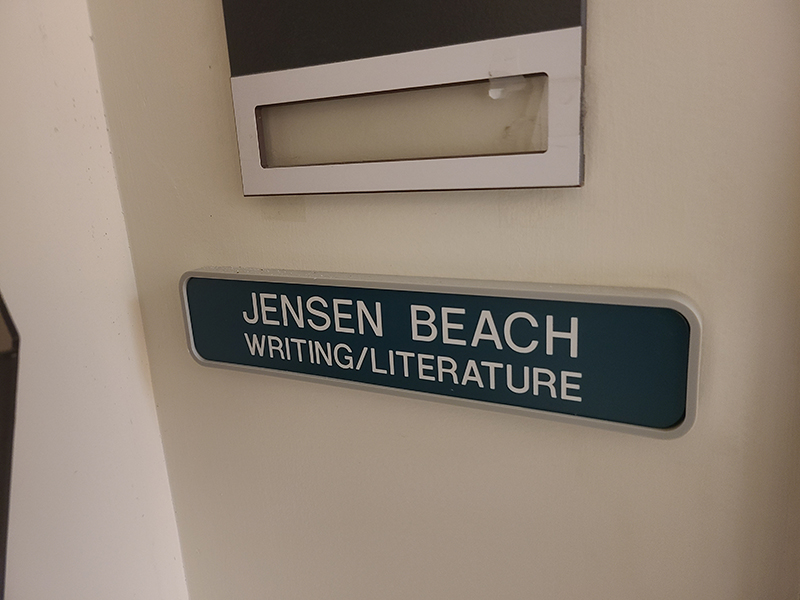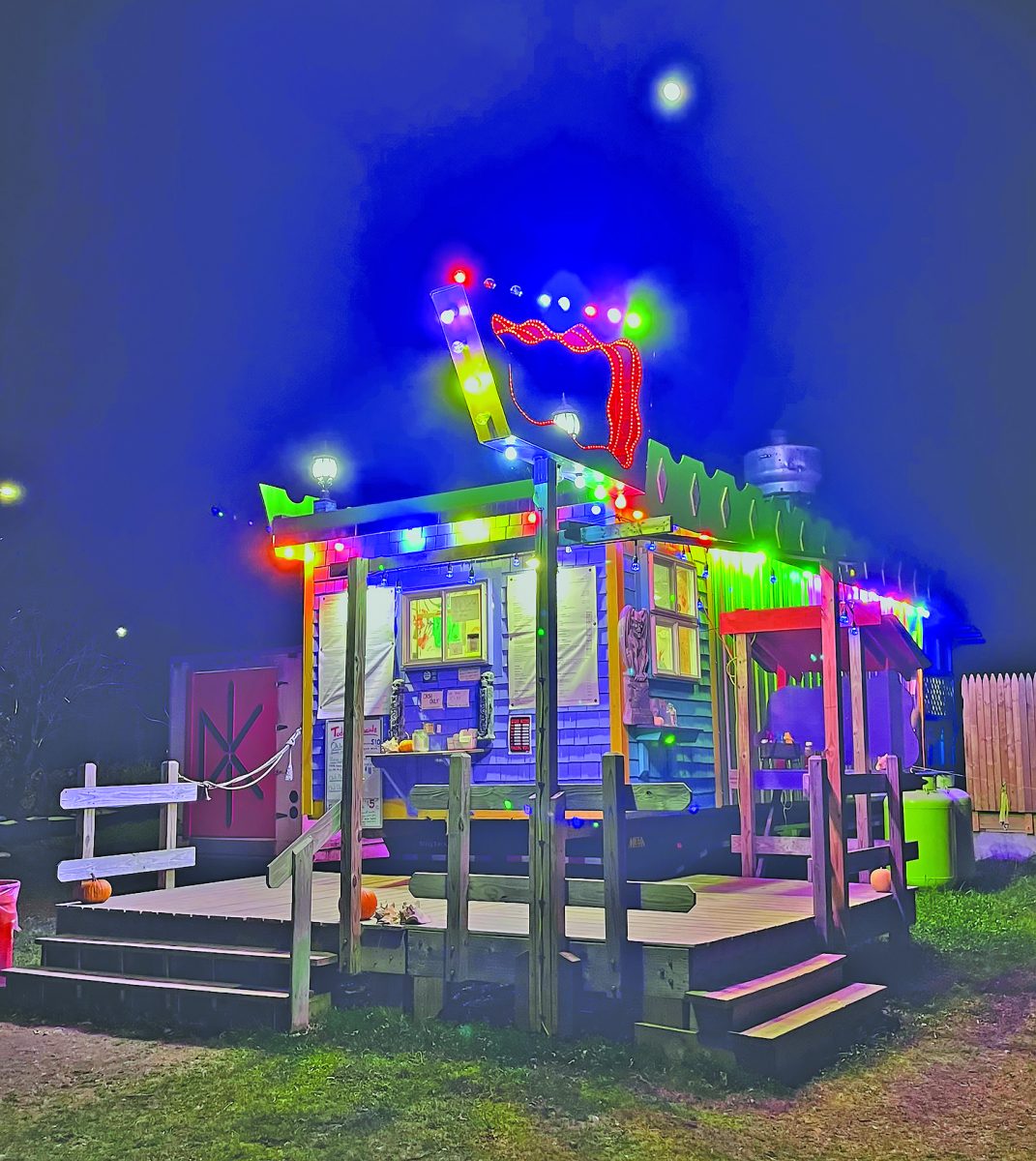Ally Bataille wants to make a difference. This past April she returned to Johnson from her three-and- a- half-month stint in Rwanda volunteering at Le Enfants de Dieu, a center for street boys outside of Kigali. Her stay in Rwanda affected not only herself, but all of the children she helped at the center. Bataille and co-volunteers created a library check-out system for the children and abolished the use of physical punishment among many other progressive acts. Here, Bataille reflects on her travels abroad:
Q: What inspired you to take your first trip to Le Enfants de Dieu in 2009?
A: My high school goes every year and I was in a world literature class with the teacher who ran it, but he focused a lot of our literature on world issues. Early on in the year he mentioned he still needed applicants for the Rwanda trip, and I had always been interested in it because they went every year. At this point I was a senior and so I [figured] I really wanted want to do this and this was my last chance so I better get on it. I handed in my application the day before it was due, and got accepted to go.
Q: In what ways did you work to break the language barrier in Rwanda?
A: Rwanda just switched their national language four years ago and so the youth are learning English in schools but the older generations know French. I was lucky to have taken some French in high school so I was able to communicate a little there. But the kids were learning English so I was able to communicate mostly in French and English or with pictures. But the boys at the center had the most difficult time understanding what we were trying to tell them. They were learning how to be in school. They were learning how to behave in a classroom setting, learning how to sit and listen, learning how to memorize and learning to follow commands.
Q: What do you believe to be your biggest accomplishment while in Rwanda?
A: I would honestly have to say the library because that put the things the center already had into use, and it gave the boys a safe place to go. It will really help in the long run because they have something to do. Before they were getting into trouble because they were bored and they didn’t have a pumped up soccer ball to play with everyday. When kids are bored, they get in trouble. What we did is get rid of the boredom factor in between classes so they can be successful.
Q: Have the changes you implemented during your time as a volunteer, such as the library check-out program and the abolishment of physical punishment stayed in place?
A: Unfortunately, I’ve been a little out of the loop because I was working at a summer camp, but I know that the volunteers that came a week before we left picked up exactly where we left off. We hadn’t completely finished the library, it wasn’t open yet, but we were so close to finishing it. Three weeks after we left they had the grand opening, and from what I understand it was the place to be. They had access to all the games, and they started drawing all the time. As far as punishment goes, that’s something where it’s really hard to say. When you aren’t there they can essentially do anything, and they aren’t going to tell you about it.
Q: What do you miss most about Rwanda? Least?
A: I have had dreams of going back. There were these two boys, some of the youngest at the center, Kevin and Kaka. I’ve had dreams of just showing up there one day and surprising them and they just run into my arms, bawling. I miss the boys a lot. And I miss the food, I ate really well there. It was all food from fresh markets. It wasn’t expensive to eat well, that’s what I really miss. I least miss working with the staff at the center; it was really frustrating on a day-to-day basis.
Q: Is there anything you regret not accomplishing during your stay in Rwanda?
A: Yes and no. I wish so badly I could have been there for the opening of the library. But at the same time when we started we had no idea that it would take over two months to finish. We worked on it for hours every day because we wanted it to be done well. We could have finished it quicker but it wouldn’t have been what we wanted it to be, so I’m glad we did it the way we did it.
Q: What is your favorite memory from working at the orphanage?
A: One of my favorite days was when we tried to teach them kickball. We decided to try kickball because it requires teamwork, which they really struggled with. But there are a lot of rules in kickball that you don’t think of until you teach it to a group of people who have never even seen it played before. I laughed a lot that day.
Q: Hindsight being 20/20, is there anything you wish you had done differently while in Rwanda?
A: Yes. There was an issue with us, the volunteers, where we had a lot of frustrations with the staff and we decided to hold them in because we understood that there were cultural differences involved. We started to do things without talking it out with the staff and their culture is big on communication. They talk all the time, a meeting that would take five minutes here, would take at least a half an hour there. Both the volunteers and the staff were getting really mad at each other and it just blew up. It was very difficult to handle that situation and we ended up apologizing, but the reason we were frustrated was because they were being selfish and in the long run they were still being selfish.
Q: Do you have plans to go back?
A: I want to go back. But I don’t have plans in the works because it’s so expensive for a plane ticket. I’ve been thinking that I would love to go back in between the month that school ends and before my summer camp job begins, but for that I’d need a really good job this winter.
Q: What projects are you working on right now?
A: This is more of an outstanding goal. We are trying to get one of our friends from the center, Willy, to the States. The goal is that he will be able to come here and either do a presentation or visit classrooms, but hopefully he will be in Vermont. He has been working a lot on raising awareness about street children all around the world, not just in Rwanda. He wants to educate people, so coming here and doing that is one of his dreams. We’re trying to help him make it happen. I’d also like to do another presentation like I did when I got back. A lot of people didn’t get to see if because of classes or they were teaching, so I want to plan another so more people can hear about it.




